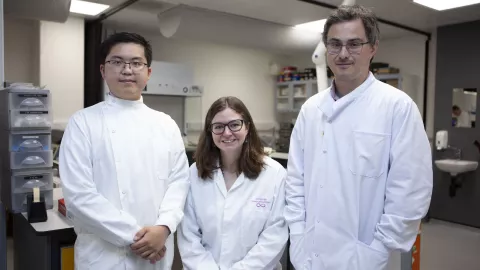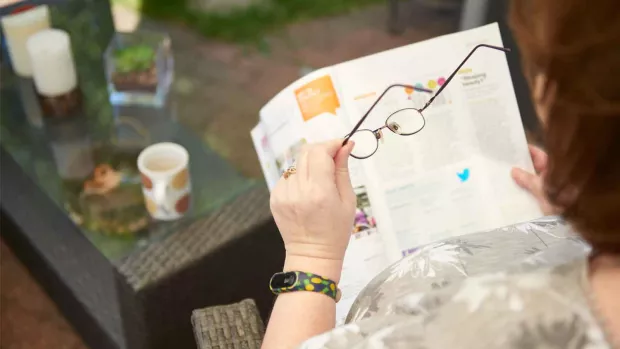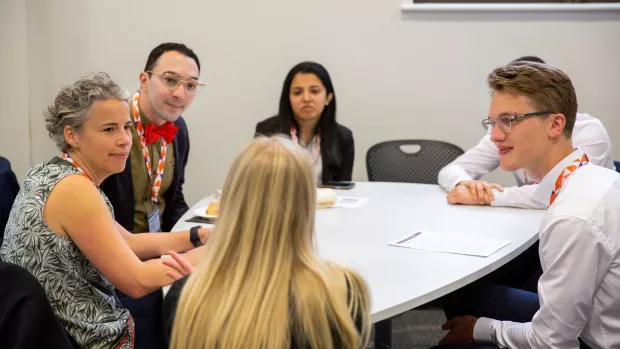
Research Network
Our Research Network is a group of people affected by MS who help shape our research programme.
They make sure all the research we fund reflects the needs and interests of people living with MS. And they help us talk about it in a way that’s accessible to everyone.
Who can join?
Anyone who lives with MS or cares for someone who does can get involved. It doesn't matter where in the UK you live or how much research experience you have.
We want to hear from you if you:
- want to help to shape our research programme
- want to learn more about medical research
- are happy to discuss your views and listen to others
- want to work with researchers and other people with MS
- will work with us to improve our Research Network.
What will I do?
There's lots of ways to get involved. You might be doing things like:
- reviewing research funding applications
- meeting researchers
- taking part in a research panels or steering groups
- improving the way we talk about research.
We'll provide all the training you need and support you any way we can.
Download our Research Network distance learning pack
Sign me up
Does that sound like you?



